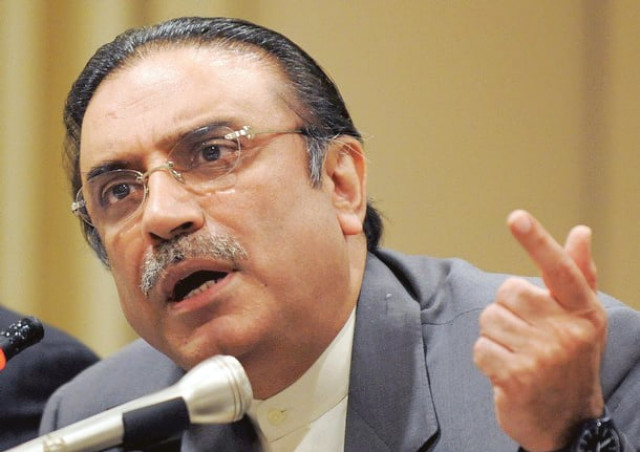If the country pays, then we pay, says ABAD delegation
President is informed of reservations the builders’ community have over imposition of flood tax in Sindh alone.

Taking the opportunity to discuss the flood tax, which is being levied in just Sindh, the builders brought out a host of problems they were facing in the city.
The president was informed of reservations the builders’ community had over imposing the flood tax on Sindh alone, where most of the people who fall in the taxable bracket are in Karachi.
Abad Chairman Babar Mirza Chughtai said of the meeting: “We apprised him [the president] of our association’s concerns about land encroachments.” He, however, declined to reveal more.
However, speaking to The Express Tribune on the condition of anonymity, a member of the delegation said that, when the president asked the delegation to cooperate and to convince other business partners in giving the flood tax, the Abad chairman said that if the rest of the country is made to pay then the builders would also have no issue in paying.
The Abad member added that, among other things, they also talked of land regularisation fees and property evaluation charges.
When the builders buy property and do not build anything on it, they have to get it ‘regularised’ by the Sindh government. According to the Abad member, this is a further burden on the owners of the plot. The land regularisation fees and extra taxes imposed means that the builders have to pay extra, which is unfair, he said.
Zardari said that he would direct the concerned department to solve the problem.
Meanwhile, property evaluation charges also bear heavy on the builders’ pockets when the government decides to cancel a plan after Abad has already invested in it. If 10 years later, they want to resume the project, they ask for money again and that too at the new market value, he explained.
The delegation also discussed the development notification issued by a project director with the help of Administrator Karachi in May against the agreement between Abad and the Sindh government for laying out the design of the project.
“When the initial design is passed by the government and they have taken two installments then the rates agreed upon should remain same. It is the government’s problem if the project is not completed in the assigned time. It is unfair to extract extra charges from the developer and those who have invested,” the member said.
He said that president responded positively and assured that the problem would be overcome soon.
The delegations’ concern over encroachment and land grabbing in Karachi by various groups was somewhat alleviated when the president said that the anti encroachment court will be made functional and these issues will be tackled by it.
However, things did not go so smoothly when the discussion turned to escalating violence in the city, which, the builders told the president, is damaging the real estate industry.
They indicated that the land mafia was also behind the recent killings
The president asked the delegation to cooperate and reach a consensus with the three main political parties in Karachi, namely the Muttahida Qaumi Movement, Pakistan People’s Party and the Awami National Party. Together they should find a solution to the violence and land mafia in Karachi. The delegation, however, did not soak up the advice too eagerly. Conversation broke off without a conclusive decision because, according to the delegation, it was the government’s job to tackle these serious issues, not the business community’s.
The meeting was attended by the Sindh chief minister, other parliamentarians and five Abad members.
Published in The Express Tribune, October 7th, 2010.



















COMMENTS
Comments are moderated and generally will be posted if they are on-topic and not abusive.
For more information, please see our Comments FAQ